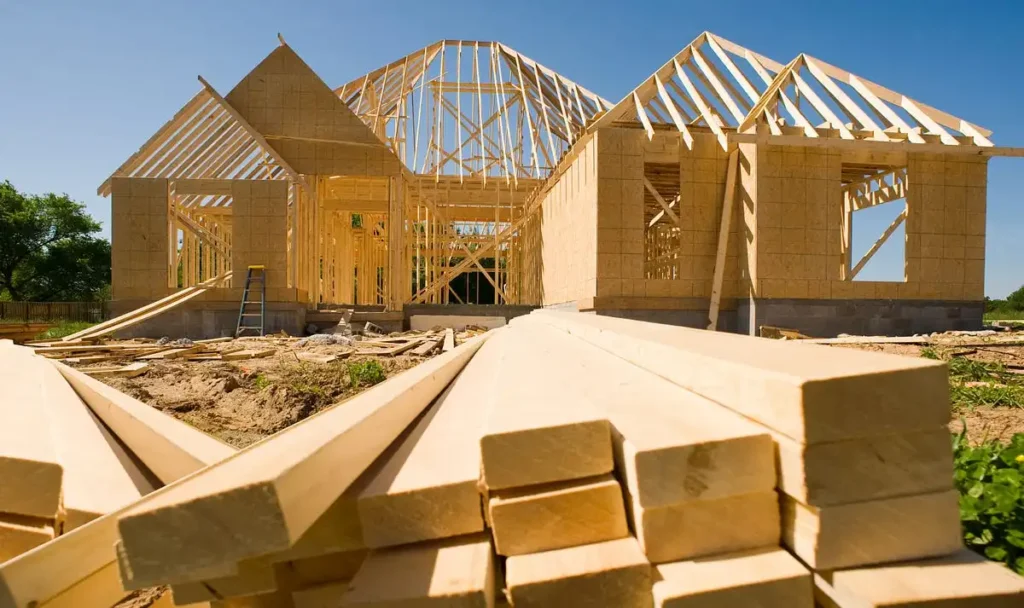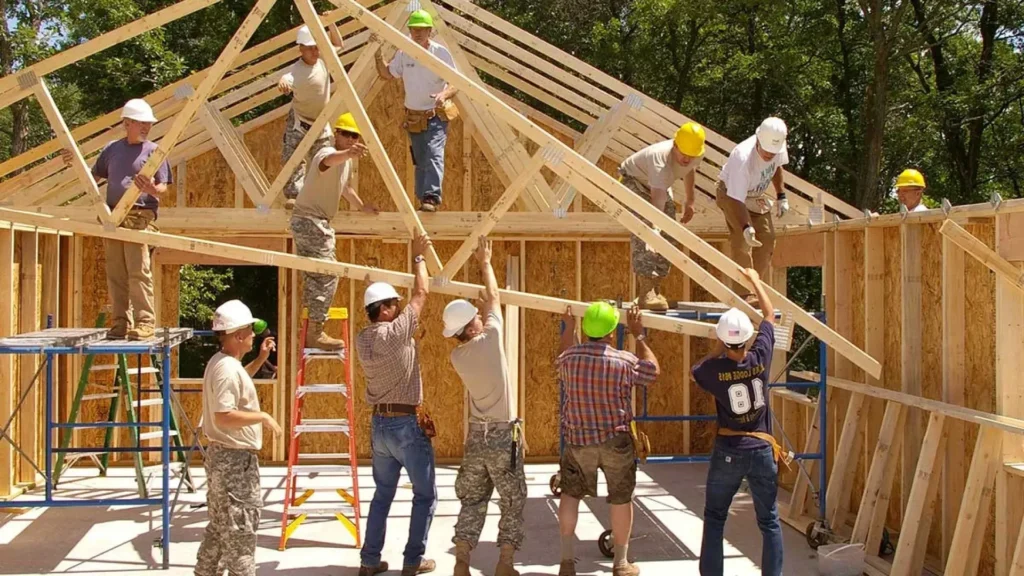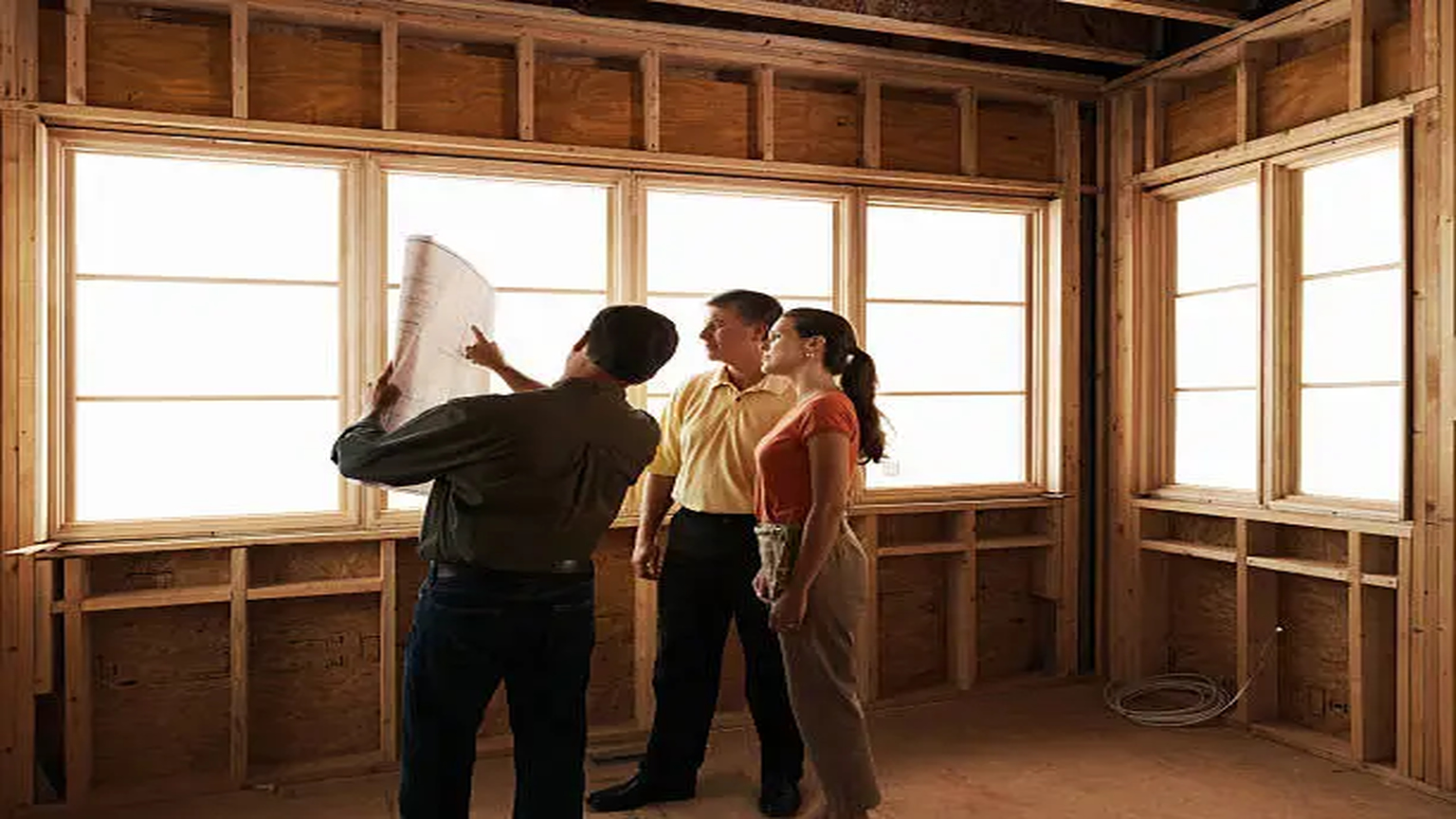What is the time duration of household construction? It is one of the most frequent questions that people ask when planning their dream house. The process of constructing a home is thrilling since you have an opportunity to create your ideal home and incorporate the latest amenities. It also implies that you can ensure that the quality meets your requirements.
Meanwhile, a house doesn’t just get built in a day. It is an enormous process that requires time and persistence. Planning at an early stage, obtaining the necessary permits, and building are all contributing factors to the duration of time it takes. So, if we are completing a home this season, we will tell you everything. How long does it take to build a house? Let us examine the durability and delays that can affect your price and timing.
Average Time to Construct a House
Here is the table that will help you know how long it takes to build a house:
| Category | Details |
| General Build Time | 7 to 14 months |
| Average Build Time (2025, U.S. Census Bureau) | 7.7 months (a new home, start to completion) |
| Built-for-Sale Homes (2025) | Just over 6 months |
| Owner-Built Homes (2025) | Nearly 14 months (U.S. CensFreelance Estimatingus Bureau) |
| Average Total Time to Build a House | 19 to 36 months (1.5 to 3 years or longer, including planning, design, permits, demolition, and construction) |
| Build Time Only (3500–5000 sq. ft.) | 13 to 18 months (excluding planning, design, and permits) |
Breakdown of House Construction Timelines
Consider a single-family custom house construction to understand the concept with estimates!
Stage 1: Planning
The planning stage is the base of your home project. It starts with choosing and buying land, which can take 4 to 6 months. If you already own land, the process becomes faster.
You also need to hire a builder, architect, and designer. This step takes 1 to 2 months, depending on their availability.
Planning also involves preparing ideas for your home design. It is a critical stage, and delays here can affect the entire construction timeline.
Stage 2: Pre-Construction
The pre-construction phase involves setting details before building starts. It includes finalising the home design, choosing the layout, and making a budget. It may take 1 to 3 months, depending on design complexity.
You also need to secure financing, which may take 1 to 2 months. Obtaining permits is the longest step, often 3 to 4 months or more.
Together, these steps can take 2 months to a year. Pre-construction is key as it clears all legal and design requirements.
Stage 3: Demolition If Required
The first step is demolition, in case there is an old house on the land. The period typically takes less than a week. Depending on the size of the structure, it may take longer.
Demolition prepares the area for work. Also, it happens that deconstruction requires more time than demolition. Clearance of the land allows us to begin construction immediately. It is a brief stage, very crucial in safety and preparation.
Stage 4: Construction
A construction process is time-consuming. It may require 9 to 18 months. It depends on the size and design of the home. Site conditions and delays in material delivery may also add time (which you can avoid by opting for reliable construction takeoff services). The construction procedure will involve foundation, framing, roofing, and internal work.
Every step should be carried out correctly to avoid future issues. This phase allows moving the design into reality. The construction is now complete in readiness to be inhabited.

| Stage | Description | Estimated Time |
| Site preparation | Clear and prepare the land | 1-2 weeks |
| Foundation | Excavate, form, pour, and cure foundation | ~1 month |
| Framing | Build walls, floors, and roof structure | 1-3 months |
| Roofing, siding, windows | Install roof, windows, and siding | 1-2 months |
| Plumbing, electrical, HVAC | Install systems and complete inspections | 1-2 months |
| Insulation and drywall | Add insulation and hang drywall | 1-3 months |
| Interior finishes | Install flooring, cabinets, paint, fixtures, etc. | 2-4 months |
| Exterior finishes | Complete painting, exterior work, landscaping | 1-2 months |
| Final inspections & walkthrough | Code checks and final builder review | 2-4 weeks |
Factors Affecting How Long It Takes to Build a House
Building a house is slow work, and the schedule & cost are not always predictable. If you know these factors, it will help you save a lot of time and cost to build a custom home.
● Location of the House Construction Project
The land you choose plays a significant role in how quickly work can begin. If the land is flat and firm, builders can start on the spot. However, if the land is uneven, hilly, or weak, it needs more work before building begins. It may take extra weeks.
The weather in the area also changes the timeline and the cost of the project. In cold places, snow and frozen ground can disrupt work or require additional resources. Heavy rain can also slow down foundation work and make it hard to pour concrete. So, where you build makes a big difference in time and money.
● Permitting Time
The other primary consideration is permits. The plans have to be checked by local offices before any construction occurs. This procedure may last weeks or months.
In case of problems with the rules or property boundaries, this process becomes prolonged. In a case where there are no permits, the developers are unable to proceed with their projects; thus, delay is inevitable. Early application of permits would help in reducing such delays.
● Scope of House Construction
The type of house you choose has a significant effect on the time it takes to complete and the cost. A spec home usually takes 7 to 14 months to build.
Building a custom home process is more lengthy, taking around 12 to 24 months, because the planning stage is lengthy and detailed. Prefab or modular homes are so much quicker — often it’s only three to four months before they’re ready to move in.
Single-family homes are also quicker to complete than multi-family houses. It is because they have fewer kitchens, fewer bathrooms, and simpler plumbing and electrical work. All these tasks take extra time in bigger buildings with more units.
The size of the home also matters. Larger homes need bigger crews or more time to complete the work. Smaller homes can be finished sooner. The average timelines mainly apply to spec houses, while custom homes can vary more depending on design and planning.

| Size Of House Per Square Ft. | Completion Time In Months |
| 1,000 | 6 |
| 1,500 | 6 |
| 2,000 | 7 |
| 2,500 | 7 |
| 3,000 | 7 |
| 3,500 | 8 |
| 4,000 | 8 |
● House Structural Features
The design of your house plays a significant role in the time it takes to build. A standard structure with simple features often takes less time. When you add unique layouts, custom elements, or special designs, extra time is needed for planning and approvals.
Engineering checks and changes to the structure add more delays. If you keep the plan simple, work goes smoothly. Custom plans may look attractive, but they always extend the construction timeline compared to standard structures.
● Building Team
A skilled and experienced building team can save a lot of time. Good builders know how to avoid mistakes and complete projects more efficiently. They manage the crew properly, handle the tasks in order, and prevent delays that can waste both time and money.
An unskilled team may struggle with simple tasks, causing mistakes and extra corrections. Choosing a trusted and professional builder helps you stay on track and complete the home within the expected house construction timeline.
● Availability of Supplies
Construction work usually requires the timely delivery of materials. When lumber, tiles, or any other supplies are delayed, the whole process becomes slow. There are occasions where the cost to build a custom home increases and builders postpone the purchases, waiting to see when the prices will fall.
Market shortages are regular and may be experienced in the movement. The project proceeds at a faster pace when materials are ready. Delay in construction can be circumvented by planning and getting supplies early enough.
● Change Orders
One of the most significant causes of delays is making changes during the construction. Planning done on paper brings a clear picture, but once work begins, people often change their minds about some finishes or layouts. Also, miscommunication may cause changes that will need different permits or design approvals.
Every modification comes on board with time and expense increases of the high-end project. Decisions should be made at the planning level so that they may not be changed. Following the initial plan helps to complete the activities rapidly.
You can manage all these factors well by hiring building estimators to estimate the house construction time and cost. Get assistance from experts and experience the difference!
Common Mistakes that Delay House Construction
Delays are expected in home-building projects. Most delays occur because of weather, insufficient supplies, or worker and project manager conflicts. Minor mistakes will also stop the work and influence the schedule. Research indicates that over 87% of projects are delayed or are over budget.
All of these mistakes may lead to financial hardship and legal action. Careful planning and sound management reduce this risk. Here are the common mistakes that cause delays:
● Lack of Detailed Planning
Starting a house without a complete plan is a huge mistake. Lack of fine details in a design, spec, or schedule can lead to confusion later on. It often causes sudden changes when not wanted, wasting your time and adding costs. Having a clear plan from the start prevents mistakes, keeps construction on schedule, and results in less downtime.
● Ignoring Costs and Timelines
When costs and deadlines are not planned well, problems come fast. Running out of money delays buying materials. Extending time increases expenses. This mistake often pushes the cost to build a custom home higher than expected, making budgets harder to manage.
● Poor Design or Layout
A weak design always causes changes later. Shifting plumbing, walls, or wiring takes time. This rework costs extra money. When layouts are wrong, construction slows. Workers stop until changes are final. Mistakes at the design level hurt projects deeply.
● Hiring Incompetent Contractors
When unskilled or cheap contractors are selected, poor-quality work is obtained. If they do not have enough safety knowledge, it is dangerous. Competent contractors with demonstrated work history have a better output, finish work within schedule, and get things done safely in the process.
● Poor Communication
The client, the architect, and the builder have weak communication, and this leads to misunderstandings. Overlooked directions or ambiguous information will create errors, redundancies, and unnecessary time wastage. Teamwork is necessary in construction, and a communication breakdown disrupts the flow.
● Ignoring Permits and Approvals
Failure to secure a permit or approvals before construction is a significant problem that arises. The authorities can put a hold on the project until documents are cleared. It slows down proceedings at the expense of wastage of money. In time, approval of the permits will ensure no interruption in work.
● Not Planning for Contingencies
Unexpected problems can come at any time in construction. Without extra funds or spare time, projects stop midway. Lack of contingency planning brings stress, cost increase, and long delays before the work resumes.
● Compromising on Material Quality
Cheap and low-quality materials may save money at first. Later, they cause cracks, repairs, and rework. It not only delays the project but also increases cost, reducing the overall value of construction.

Tips to Stay on Schedule
Explore some tips that will help you complete your project on time and help you reduce the modular home cost:
- Use stock home designs instead of custom blueprints to save time.
- Understand how long it takes to build a house by learning the process before you start.
- Pick locally available materials to avoid supply delays.
- Hire a construction estimator and project manager to ensure that no delays and cost overruns occur.
- Adhere to your budget proposal to prevent delays in attaining a loan or any funding.
- Work with a team that knows local permitting laws.
- Finalize all design details before breaking ground.
- Avoid changes once construction begins to speed up the completion.
Project Success Significantly Depends on Construction Estimates. So Start With Accurate Cost Plans!
First, obtain estimation services from industry experts, and then initiate construction. This will keep your project on time, saving it from unexpected delays and budget overruns. Start building smartly!
FAQs
1. Does climate change have the potential to modify the construction schedule of a home?
Unexpected rain, snow, or storms can also slow down work, mainly at the stage of foundation and exterior. Buffer time can help to cope with such delays.
2. How much does it cost to hire an architect separately?
Depending on the area and architects, the costs of architect fees vary between 5 and 15 percent of the total construction cost. It will depend on the complexity of your design and whether you use hourly rates or fixed-cost-based contracts.

